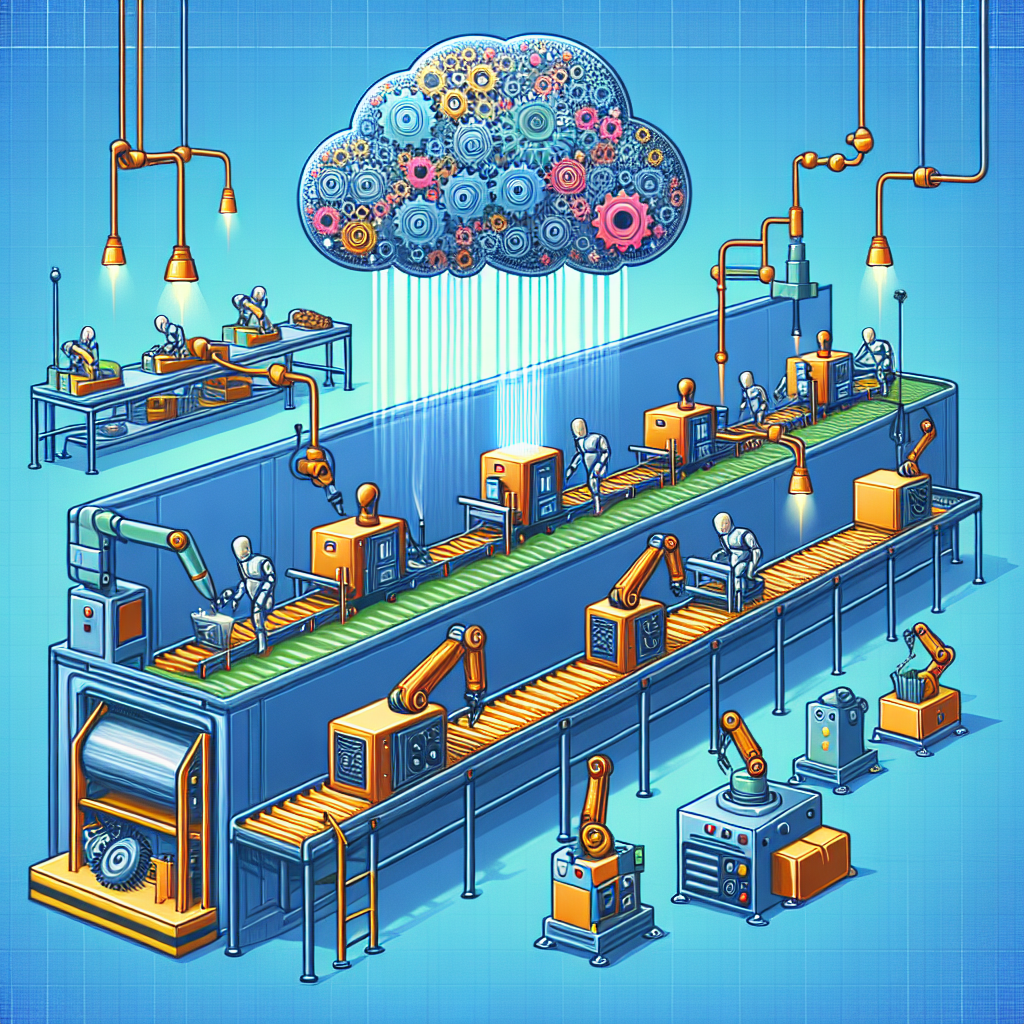In today’s fast-paced manufacturing environment, real-time capacity planning is crucial for optimizing production efficiency and meeting customer demands. With the advent of artificial intelligence (AI) technologies, manufacturers now have the ability to leverage advanced algorithms to predict and adjust capacity in real-time, leading to improved resource utilization and reduced operational costs.
AI for Real-time Capacity Planning
AI-powered capacity planning involves using machine learning algorithms to analyze historical data, current production trends, and external factors to predict future capacity requirements. By incorporating real-time data from sensors, machines, and other sources, AI can provide manufacturers with accurate and timely insights into capacity utilization, allowing them to make informed decisions on resource allocation, scheduling, and production planning.
One of the key benefits of using AI for capacity planning is its ability to optimize production schedules in real-time. Traditional capacity planning methods often rely on static models that do not account for dynamic changes in demand or production constraints. With AI, manufacturers can continuously update their capacity plans based on the latest data, ensuring that production schedules are always aligned with current requirements.
AI can also help manufacturers identify bottlenecks and inefficiencies in their production processes. By analyzing data from various sources, including production lines, equipment performance, and employee productivity, AI can pinpoint areas where capacity can be increased or optimized. This allows manufacturers to proactively address issues before they impact production output, leading to improved overall efficiency.
Furthermore, AI can enable predictive maintenance strategies that help prevent unexpected equipment failures and downtime. By analyzing historical maintenance data and machine performance metrics, AI can forecast when maintenance is needed and schedule it at optimal times to minimize disruption to production. This proactive approach to maintenance can help manufacturers avoid costly downtime and ensure that production lines operate at peak efficiency.
FAQs
Q: How does AI improve capacity planning in manufacturing?
A: AI uses advanced algorithms to analyze real-time data and predict future capacity requirements, enabling manufacturers to optimize production schedules, identify bottlenecks, and implement predictive maintenance strategies.
Q: What types of data are used in AI-powered capacity planning?
A: AI analyzes a variety of data sources, including historical production data, real-time sensor data, equipment performance metrics, and external factors such as market demand and supply chain disruptions.
Q: How can manufacturers implement AI for real-time capacity planning?
A: Manufacturers can implement AI for capacity planning by integrating AI algorithms into their existing production systems, collecting and analyzing relevant data, and using AI-powered tools to generate actionable insights and recommendations.
Q: What are the benefits of leveraging AI for capacity planning?
A: AI can help manufacturers optimize production schedules, increase resource utilization, identify inefficiencies, and implement predictive maintenance strategies, leading to improved operational efficiency and reduced costs.
In conclusion, leveraging AI for real-time capacity planning in manufacturing offers numerous benefits for manufacturers looking to optimize production efficiency and meet customer demands. By using advanced algorithms to analyze data and predict future capacity requirements, AI can help manufacturers make informed decisions on resource allocation, scheduling, and production planning. With the ability to continuously update capacity plans based on real-time data, AI empowers manufacturers to adapt to dynamic changes in demand and production constraints, leading to improved resource utilization and reduced operational costs. As AI technologies continue to evolve, manufacturers can expect even greater advancements in real-time capacity planning, ultimately driving increased efficiency and profitability in the manufacturing sector.

